In the event of a dental crisis, finding a trusted Emergency Dentist NJ can be a daunting task. With such a wide variety of dental issues that can be classified as emergencies, it's essential to understand which ones require immediate attention. This is where we step in to ensure your dental emergencies are handled swiftly, professionally, and with the highest level of care.
So, what is typically considered a dental emergency? Dental emergencies often involve severe pain, sudden discomfort, or damage to the teeth or gums. Some common dental emergencies include knocked-out teeth, loose or broken teeth, severe toothache, or injuries to your gums or mouth. Regardless of the cause, immediate care is critical to prevent further complications and protect your dental health.
At our clinic, we're always prepared to handle these situations. As an experienced Emergency Dentist in NJ, we prioritize your comfort and safety above all else, ensuring that we're available to assist when you need us the most.
During dental emergencies, time is often of the essence. It's crucial not to ignore these problems, hoping they will go away. Instead, seek professional assistance promptly. If you're unsure whether your condition qualifies as an emergency, it's best to err on the side of caution and get in touch with an Emergency Dentist NJ. Our dedicated team will assess your situation and provide the necessary guidance.
Apart from offering emergency dental services, we're also committed to helping our patients maintain good dental health. Regular check-ups, professional cleanings, and proper oral hygiene practices can prevent many dental emergencies from occurring in the first place.
Aside from emergencies, we provide a range of comprehensive dental services. If you're looking to enhance the appearance of your smile, our cosmetic dentistry services can assist you. Whether you're considering teeth whitening, veneers, or a full smile makeover, our team of experts is ready to meet your needs.
We also offer advanced restorative treatments like dental implants and dentures. If you're uncertain about which solution is right for you, take a look at our implants vs. dentures pros and cons guide for more insight.
Moreover, our general dental care includes services like cleanings, fillings, root canals, and preventive care. Understanding the root canal treatment planning, cost, procedure, and risks can prepare you for what to expect should you require this treatment.
Dr Trichas believes that every patient deserves access to high-quality, immediate dental care when they need it. We accept a wide range of insurance plans and offer flexible payment options to ensure that our emergency dental services are accessible to everyone.
Our staff is always available to assist you with insurance claims and paperwork. If you're unsure whether your insurance covers emergency dental care, don't hesitate to contact us. We're more than happy to answer any questions you have about our payment options.
We also understand that dental emergencies can be stressful and financially challenging. For uninsured patients or those whose insurance doesn't cover all the costs, we offer various financing options. Our goal is to make sure that nothing stands in the way of you receiving the urgent dental care you need.
Facing a dental emergency can be stressful, but with a reliable Emergency Dentist NJ by your side, you can rest assured you're in capable hands. Whether it's an unexpected dental emergency or routine care, we're committed to providing top-notch service that meets and exceeds your expectations.
Schedule your free consultation today, and let us help you achieve and maintain a healthy, beautiful smile.
When it comes to emergency dental care, many patients have questions. Here are some of the most common:
A dental emergency is typically defined as a situation that involves sudden or severe toothache, knocked-out teeth, loose or broken teeth, injuries to the soft tissues of the mouth, or severe infections. If you're experiencing any of these conditions, you should seek immediate help from an emergency dentist in NJ.
At our clinic, we understand that dental emergencies can happen at any time and can cause significant discomfort. That's why we offer prompt and effective emergency dental services to provide relief and address the underlying issue. Don't hesitate to reach out to us if you're in need.
It's crucial to stay calm and act promptly in a dental emergency. If you're experiencing severe pain or have suffered a dental injury, contact us immediately. We'll provide guidance and arrange an immediate appointment if necessary.
While not all dental emergencies can be avoided, maintaining good oral hygiene, wearing protective gear during sports, and having regular dental check-ups can significantly reduce the risk.
Need to see a dentist immediately? Give us a call at 908-952-2087 or Contact Us Here.
The journey to restoring your smile with dental implants does not end with the surgery. The recovery phase is an integral part of the process and plays a pivotal role in the success of the implants. Although dental implant surgery has a high success rate, understanding the recovery process and following the necessary precautions can greatly contribute to the longevity of your dental implants.
Dental implant surgery involves replacing missing teeth roots with screw-like metal posts and replacing damaged or missing teeth with artificial teeth that function and look much like real ones.
Typically, the recovery process after dental implant surgery varies from person to person. Factors such as the number of implants placed, individual healing ability, and the overall health of the patient can affect the recovery timeline.
Generally, the recovery period can take several weeks to a couple months.
After surgery, it is normal to experience some pain and bleeding at the surgical sites. Pain medications such as acetaminophen or ibuprofen can help in relieving discomfort during this time. Your dentist may also recommend an antibiotic to prevent infection. Swelling may also occur at the surgical sites and can be managed with cold compresses.
Immediately following your dental implant surgery, it's essential to follow your dentist's or oral surgeon's instructions. Here are some general aftercare tips:
Maintaining a healthy diet after dental implant surgery plays a crucial role in your recovery. Opt for soft, easy-to-chew foods and ensure you are well-hydrated.
Here are a few tips to make the process go smoother:
Your dentist will provide you with specific post-operative instructions. It is crucial to follow these diligently to ensure optimal healing. These instructions often include guidance on eating habits, medication regimen, and oral hygiene practices.
Keeping your mouth clean is essential to prevent infections and promote healing. Rinse your mouth with a warm saltwater solution several times a day. Be gentle when brushing around the implant site.
A balanced diet is important for your overall health and can aid in your recovery. Try to consume soft foods and avoid hard, crunchy, or spicy foods that might irritate the implant site.
Taking adequate rest is key to a speedy recovery. Also, ensure you are drinking plenty of fluids, but avoid using a straw as the sucking motion can disrupt the healing process.
Both smoking and alcohol can delay healing and negatively impact the success of your dental implants. Try to abstain from these, particularly in the first few weeks following surgery.
Follow-up appointments are essential to monitor your progress and catch potential issues early. Never skip these appointments.
Dental implant surgery can significantly enhance your quality of life, giving you back your confidence to smile, eat, and engage in social activities without worry. With a high success rate, it is a worthwhile investment in your oral health.

Recovering from dental implant surgery can be a fairly comfortable process with the right care and precautions. The key to a smooth recovery lies in following your oral surgeon's advice, maintaining good oral hygiene, and taking care of your overall health.
Remember, each person's recovery process may vary, so it's essential to listen to your body and contact your oral surgeon if you have any concerns.
For more information on dental implant surgery or to schedule a consultation, don’t hesitate to contact us.
Every year, millions of people across the globe benefit from the transformative impact of dental implants. Despite the proven effectiveness and increasing popularity of this dental procedure, misconceptions abound. These misconceptions can deter people from choosing dental implants, robbing them of an opportunity to improve their oral health and quality of life. Let's address some of these common misconceptions and reveal the truth about dental implants.
One of the most common misconceptions about dental implants is that the procedure is painful. In reality, most patients report that getting a dental implant is no more uncomfortable than a tooth extraction. The procedure is typically performed under local anesthesia, so you won't feel pain during the process. Additionally, any post-operative discomfort can be managed with over-the-counter pain relievers and usually subsides within a few days. To learn more about what to expect, you can read our guide on whether dental implants hurt.
It's true that the upfront cost of dental implants can be higher than other tooth replacement options. However, when considering the long-term benefits and cost-effectiveness, dental implants often become the more affordable choice. Dental implants can last a lifetime with proper care, unlike dentures or bridges that need periodic replacement. This makes dental implants a worthwhile long-term investment in your oral health. You can explore the cost of dental implants here.
Contrary to this misconception, dental implants are designed to look, feel, and function like your natural teeth. They are custom-made to match the color and shape of your existing teeth, resulting in a natural-looking smile. Dental implants also preserve the natural bone, improving long-term facial appearance. To see how natural dental implants can look, check out our smile makeover gallery.
While technically any dentist can perform the implant procedure, it is crucial to choose a dentist with specific training and experience in dental implants. A well-trained and experienced dentist can accurately assess your needs and execute the procedure correctly, reducing risks and improving results. We offer the best dental care in Basking Ridge, NJ, including expertise in dental implants.
Unlike dentures, which require nightly soaking and special cleaning, dental implants can be cared for just like your natural teeth. Brushing twice a day, flossing daily, and regular check-ups with your dentist are all that is needed to maintain your implants. For more tips on extending the life of your implants, you can read about dental implants aftercare.
Many people express concerns over the safety of dental implants. However, dental implants are, in fact, safe and effective. They are made from biocompatible materials, which do not cause a reaction in the body and allow the implant to fuse with the bone in a process called osseointegration. Additionally, dental implants have a success rate of up to 98%. For concerns about the safety of dental implants, you can read about dental emergency services.
While it's true that dental implants are often used to replace lost teeth in older adults, they're not exclusive to this age group. Dental implants can be a viable solution for anyone missing one or several teeth, regardless of age. They can be particularly beneficial for younger patients who have lost a tooth due to trauma or disease.
Contrary to this belief, dental implants don't require more frequent dental visits than natural teeth. After the healing period following implant surgery, routine check-ups and cleanings are typically all that's required. This misconception may come from the necessary visits during the implant process itself, which includes placement, healing, and the attachment of the dental prosthesis.
A properly placed and restored dental implant should be indistinguishable from a natural tooth. The aim of a dental implant is to restore both function and aesthetics. Dental professionals take great care in ensuring that the shape, color, and size of the dental crown attached to the implant matches your natural teeth, so your dental implant should go unnoticed.
With these misconceptions cleared, it's easier to see the true value and benefits dental implants offer to those with missing teeth. As always, consult with a dental professional to get accurate information tailored to your unique dental situation. Consider scheduling a free consultation to learn more about dental implants and if they're the right choice for you.
Understanding the facts about dental implants can help you make informed decisions about your oral health. Dental implants can offer a durable, natural-looking solution to replace missing teeth and restore your smile.
If you're considering dental implants and want to discuss further, don't hesitate to schedule your free dental implants consultation with us. We're here to guide you towards the best solution for your unique dental needs.
Dental implants have become an increasingly popular solution for people who have lost one or more teeth. While the prospect of a permanent, natural-looking tooth replacement is appealing, many people are concerned about the pain associated with the procedure. In this blog post, we'll discuss whether dental implants hurt, what to expect during the process, and how to manage post-operative discomfort.
A dental implant is a titanium post that is surgically placed into the jawbone to act as an artificial tooth root. Once the implant has fused with the bone, a dental crown is attached to create a natural-looking, fully functional tooth replacement. Dental implants are known for their durability, stability, and ability to preserve jawbone health.
During the dental implant procedure, your dentist or oral surgeon will administer local anesthesia to numb the area, ensuring that you remain comfortable throughout the process. Sedation options, such as nitrous oxide (laughing gas) or oral sedatives, may also be available for those with dental anxiety. As a result, most patients experience little to no pain during the actual implant surgery.
In fact - this is one of the many reasons that patients choose to go with dental implants over any alternatives.
After the dental implant surgery, it's normal to experience some level of discomfort as the anesthesia wears off. This may include:
These symptoms typically peak within the first 24-72 hours after the procedure and gradually subside over the following days. Your dentist or oral surgeon will provide you with detailed instructions on how to manage post-operative discomfort and promote healing.
To minimize pain and discomfort after dental implant surgery, consider the following tips:
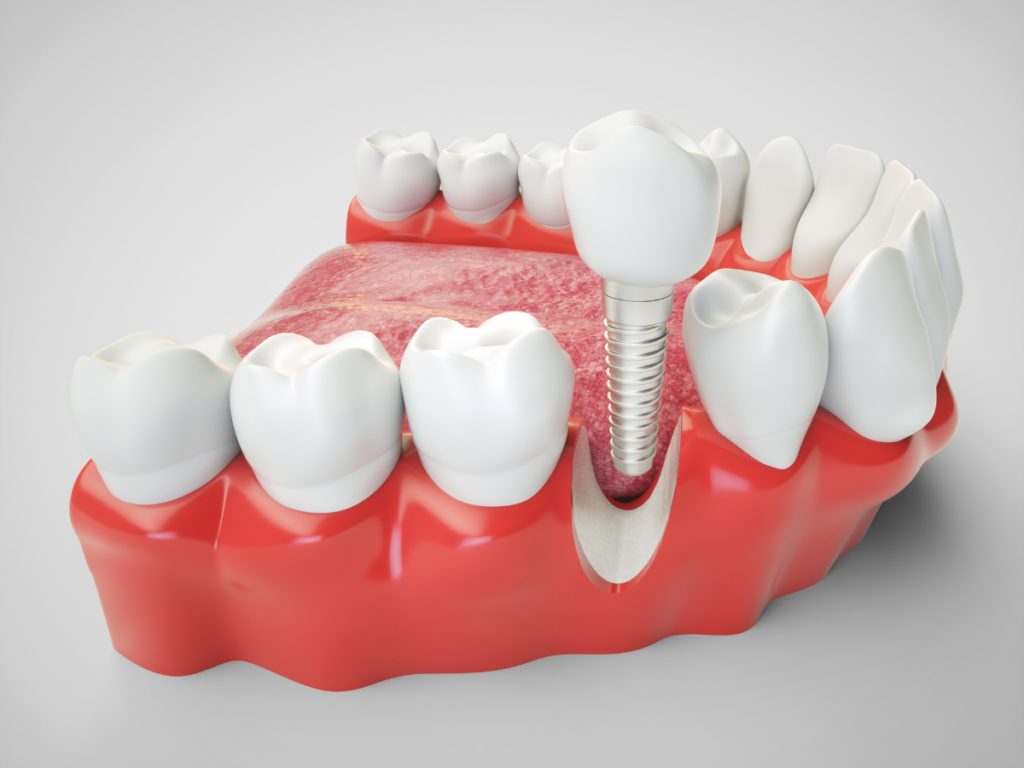
Pain and discomfort after dental implant surgery usually peak within the first 24-72 hours and then gradually subside. Most patients experience significant relief within 7-10 days. However, individual recovery times may vary depending on factors such as the complexity of the procedure, the patient's overall health, and adherence to post-operative care instructions.
It's generally recommended to take at least one day off work after dental implant surgery to allow your body to rest and begin the healing process. Depending on the nature of your job and the complexity of the procedure, you may need additional time off. Talk to your dentist or oral surgeon about your specific situation and follow their recommendations.
While the prospect of dental implant surgery may seem daunting, the procedure itself is typically not painful due to the use of anesthesia and sedation options. Post-operative discomfort is generally manageable with the proper care and medication.
If you're considering dental implants, consult with a dental professional to discuss your concerns and determine if this tooth replacement option is right for you. With proper care and attention, you can expect a smooth recovery and enjoy the long-term benefits of a stable, natural-looking tooth replacement.
Book a free dental implants consultation in basking ridge today. Click here.
Do you often find yourself hiding your smile during social interactions or avoiding photos because you're self-conscious about your teeth? If so, investing in a smile makeover might be the perfect solution for you. In this blog post, we'll explore the various benefits of a smile makeover and why it's worth every penny. Let's dive in!
A smile makeover is a customized dental treatment plan that aims to improve the overall appearance and function of your teeth, gums, and bite. It can include a combination of cosmetic dentistry procedures such as teeth whitening, dental veneers, dental crowns, orthodontics, and dental implants.
By addressing your unique dental needs, a smile makeover can help you achieve a more attractive and healthier smile.
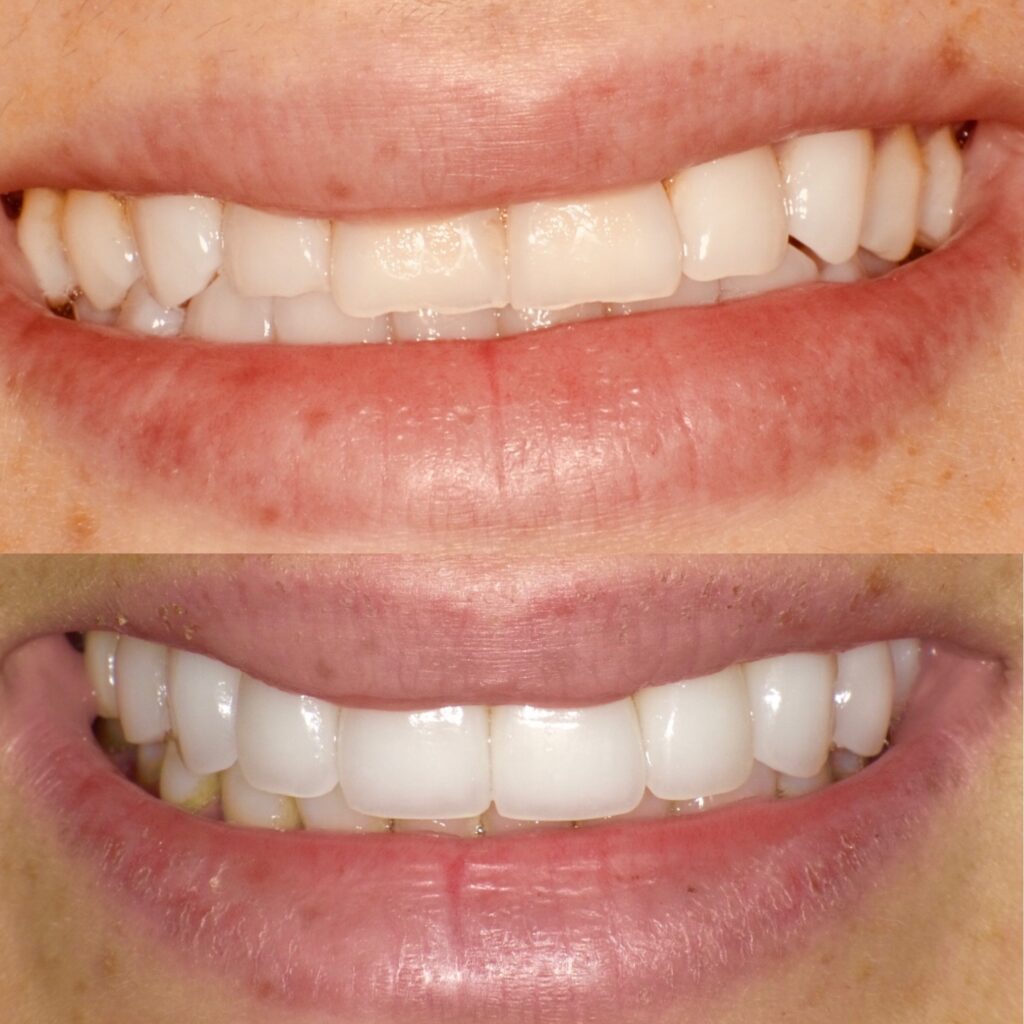
The smile makeover process is truly unique —the goal is to design a treatment plan that will give you the best results possible and meet your exact needs and preferences.
One of the most significant benefits of investing in a smile makeover is the confidence boost it provides. A stunning smile can make a world of difference in your self-esteem and how you present yourself to others. When you're proud of your smile, you're more likely to engage in social activities, form meaningful connections, and project a positive attitude.
Investing in a smile makeover not only enhances your appearance but also promotes better oral health. Crooked, misaligned, or damaged teeth can lead to a variety of oral health issues, such as gum disease, tooth decay, and even tooth loss. By addressing these concerns through a smile makeover, you're not only improving the look of your smile but also ensuring a healthier future for your teeth and gums.
A healthy smile has a domino effect on your overall well-being. When your teeth and gums are in good condition, you're more likely to maintain a balanced diet, as you can enjoy a wide range of nutritious foods without discomfort. Moreover, a confident smile can lead to better mental health by reducing stress and anxiety associated with self-consciousness.
A significant advantage of a smile makeover is that the results are often long-lasting, provided you maintain proper oral hygiene and follow your dentist's recommendations. For example, dental veneers can last up to 15 years, while dental implants can last a lifetime with proper care. This means that your investment in a smile makeover will continue to pay off for years to come.
A beautiful, confident smile can also have a positive impact on your professional life. Employers and colleagues are often drawn to individuals who project a positive and confident demeanor. With an attractive and healthy smile, you can make a great first impression and improve your chances of success in job interviews and professional interactions.
In conclusion, a smile makeover is a worthwhile investment that can significantly improve your quality of life. From boosting your confidence to enhancing your oral health and overall well-being, a customized treatment plan can provide long-lasting benefits that go beyond just aesthetics. If you're considering a smile makeover, don't hesitate to consult a trusted dental professional in your area to discuss your options and take the first step towards a healthier, more confident smile.
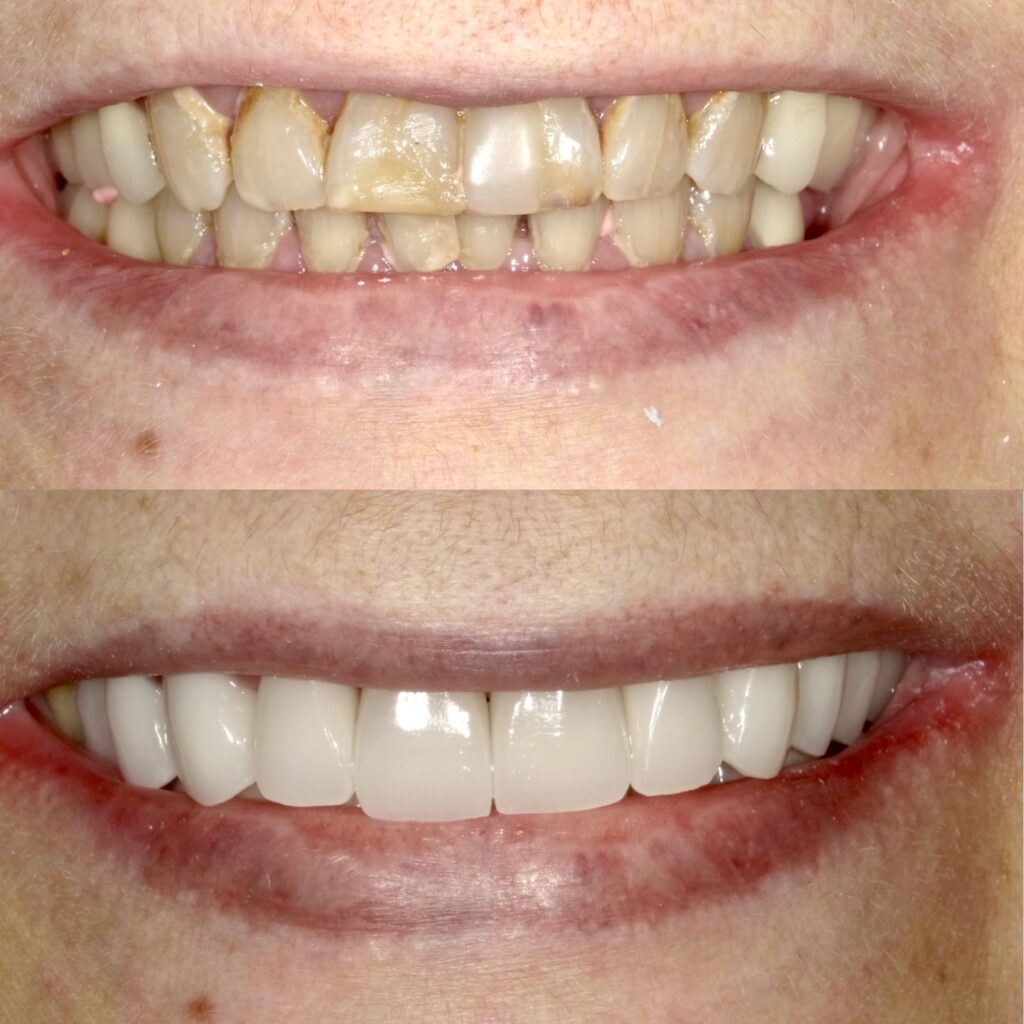
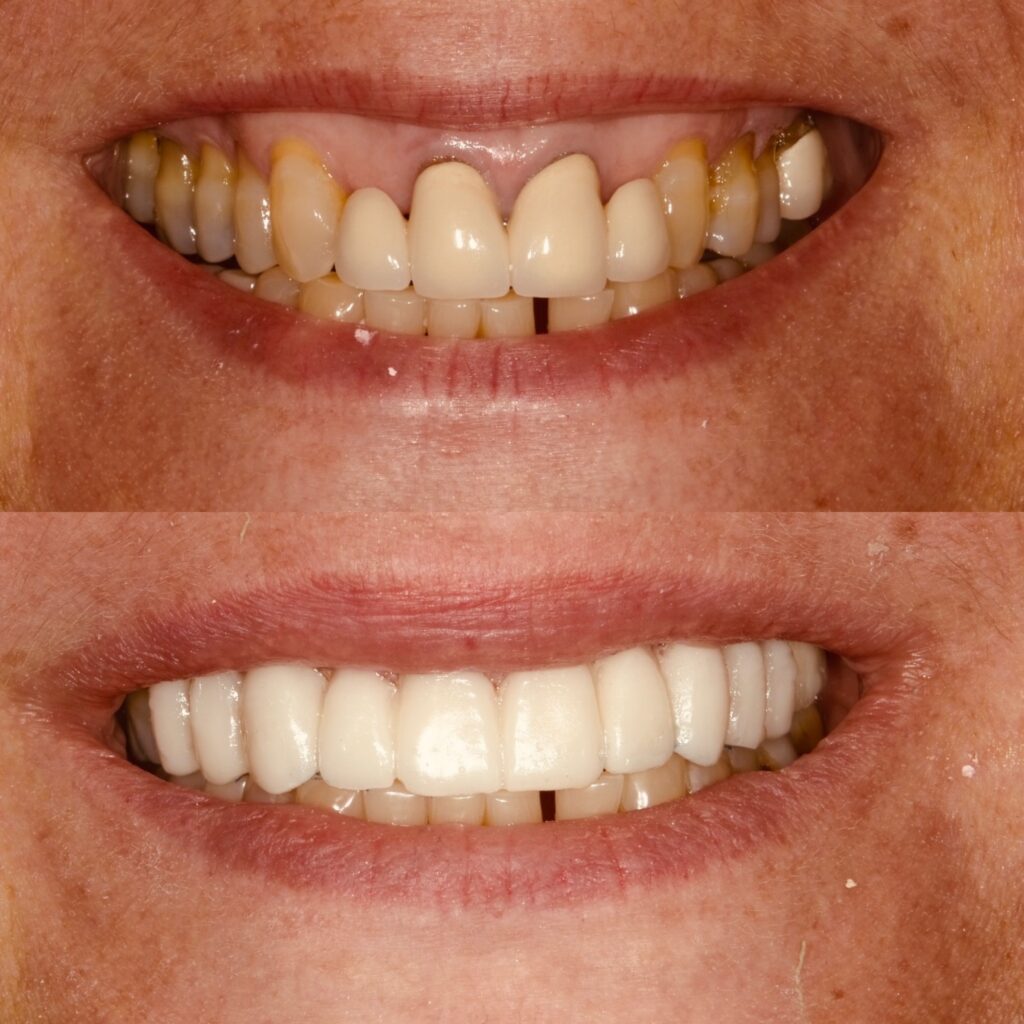
Book a visit Dr. Trichas at 41 Stonehouse Road in Basking Ridge! Our office specializes in providing customized smile makeover treatments tailored to the unique needs of each patient. Book a free consultation here.
The cost of a smile makeover depends on the specific treatment plan that is recommended for you. Generally speaking, however, a full smile makeover can range from $1,000 to $20,000 or more depending on your individual needs and goals.
The amount of time needed for a smile makeover depends on the complexity of the plan and the treatments that are recommended. Generally, a full smile makeover can take anywhere from one to several dental appointments.
A smile makeover is definitely worth it! Investing in a more attractive and healthier smile can have many benefits, like improving your confidence, enhancing your oral health, and even increasing success in your professional life.
When it comes to maintaining optimal oral health, finding the right dentist is crucial. For residents of Basking Ridge, New Jersey, Dr. Konstantine Trichas is the go-to dentist for top-quality dental care.
With years of experience and a dedication to patient comfort and satisfaction, Dr. Trichas and his team offer a comprehensive range of dental services, from routine cleanings to complex procedures, all in a warm and welcoming environment.
At the heart of Dr. Trichas' practice is a commitment to personalized care. From the moment you step into the office, you'll be greeted with a friendly smile and a warm welcome. Dr. Trichas takes the time to get to know each patient and their unique needs, ensuring that every treatment plan is tailored to meet their specific goals and concerns.
Whether you're looking for a routine cleaning or a more complex procedure like dental implants or veneers, Dr. Trichas and his team have the experience and expertise to deliver exceptional results.
They utilize the latest technologies and techniques to ensure that each patient receives the most effective and efficient care possible, all while ensuring maximum comfort and minimal pain.
But what truly sets Dr. Trichas' practice apart is his commitment to patient education.
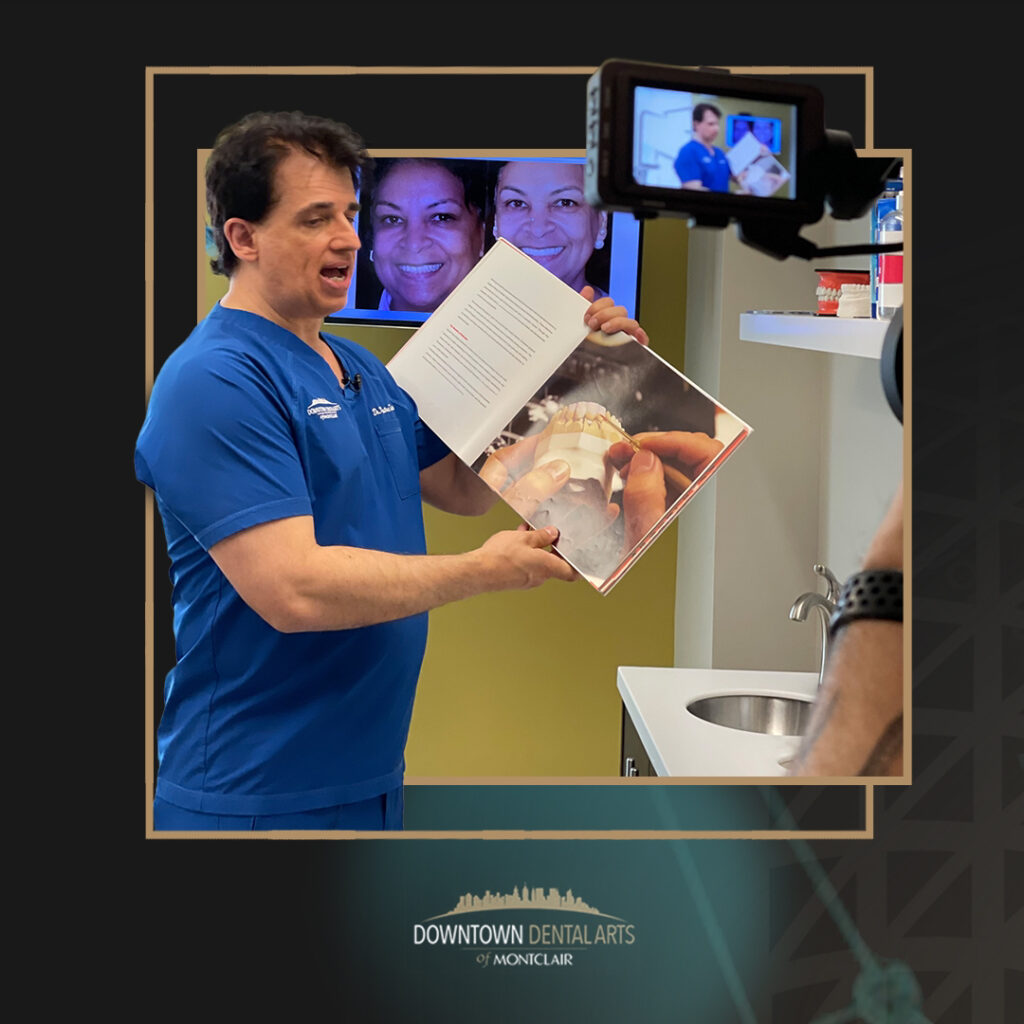
He and his team take the time to explain each procedure and treatment option in detail, ensuring that patients have a complete understanding of their oral health and the options available to them. This dedication to patient education not only helps patients make informed decisions about their care but also empowers them to take an active role in maintaining their oral health for years to come.
In addition to his commitment to patient care and education, Dr. Trichas is also an active member of the Basking Ridge community. Dr. Trichas and his team as a whole participate in a wide range of community events and charitable initiatives, all aimed at improving the health and well-being of local residents.
So, if you're looking for the best dental care in Basking Ridge, NJ, look no further than Dr. Konstantine Trichas. With his dedication to personalized care, cutting-edge technology, and commitment to patient education, he and his team are sure to exceed your expectations and help you achieve optimal oral health for life.
If you're looking for top-quality dental care in Basking Ridge, New Jersey, look no further than the practice of Dr. Konstantine Trichas. Conveniently located at 41 Stonehouse Rd in Basking Ridge, NJ 07920.
Schedule an appointment here.